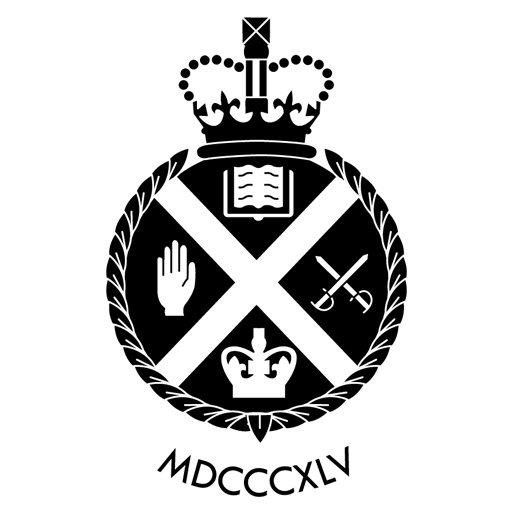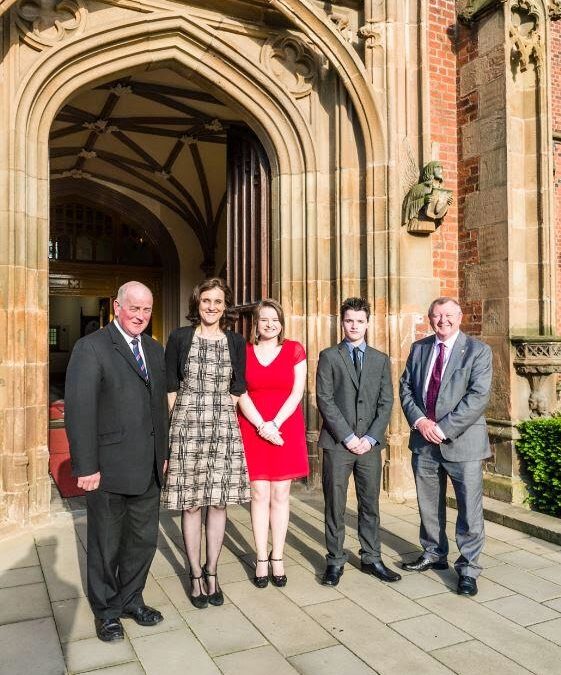Northern Ireland Secretary of State, Theresa Villiers, has commended a group of Orange students for successfully completing a leadership course co-ordinated by one of the Province’s leading universities.
A total of 34 young people participated in the EU PEACE III funded STRIPE (Stepping Towards Reconciliation in Positive Engagement) Young Leaders course at Queen’s University.
Ms Villiers attended a certificate presentation ceremony at the Belfast campus on Thursday evening.
As part of the 12-month course, students were provided the opportunity to acquire a knowledge of leadership and management approaches, and the opportunity to analyse the concept of leadership and the role that leaders play in society. Participants also travelled to Italy to explore the management of competing minority cultural rights.
The leadership and management course, now in its third year, was delivered in partnership between the STRIPE Project, funded by the European Union’s PEACE III Programme, and Queen’s University.
There are many examples of course graduates taking up leadership roles within their local community, whether that be within various community groups, the loyal orders, bands or politics. Indeed, two former students were elected as councillors in last month’s local government elections.
Secretary of State Villiers said:
“I am delighted to participate in the STRIPE Young Leaders certificate presentation ceremony this evening. There is no doubt that STRIPE has produced an important and exciting development opportunity for the younger members of the Orange Order, by equipping the students with the necessary skills and experience to ensure not only that they can play a positive role within the community in the years ahead, but also to enable them to actively promote mutual understanding and reconciliation between different traditions and different parts of the community.
“I offer my congratulations to all who have completed this excellent course and wish them every success in putting what they have learnt into practice in the future.”
Grand Secretary of the Grand Orange Lodge of Ireland, Drew Nelson, said:
“An exciting part of this project is identifying young leaders, building their capacity and developing their skills so that they can play a full role in shaping society.”
STRIPE leadership development officer Richard Forsythe said:
“There were a number of benefits for those who participated on the course, including a recognised qualification from Queens University, Belfast. Students were also provided the opportunity to analyse the concept of leadership and the role that leaders play in initiating and implementing change and reform.”
There are currently more than 100 participants enrolled on this year’s course with two classes at Queen’s and a further class being held in Eglinton Orange Hall, Co Londonderry.
Notes to Editors:
In April 2012, the Orange Order received a grant of almost £900,000 from the European Union to help address the legacy of the Troubles in the Protestant community, particularly in interface and border areas of Northern Ireland and the border counties of the Republic of Ireland.
Seven full-time staff are working on the project which is being financed until December 2014.
The STRIPE Project received £884,022 from the Special EU Programmes Body.
The Special EU Programmes Body is a North/South Implementation Body sponsored by the Department of Finance and Personnel in Northern Ireland and the Department of Finance in Ireland. It is responsible for managing two EU structural funds Programmes PEACE III and INTERREG IVA designed to enhance cross-border co-operation, promote reconciliation and create a more peaceful and prosperous society. The programmes operate within a clearly defined area including Northern Ireland, the Border Region of Ireland and in the case of INTERREG IVA, western Scotland.
The PEACE III Programme, funded under the European Regional Development Fund (ERDF), is worth €333 million and is aimed primarily at reinforcing progress towards a peaceful and stable society and promoting reconciliation. It focuses on helping Northern Ireland and the Border Region of Ireland to reconcile communities and contribute towards a shared society.
For more information on the SEUPB please visit www.seupb.eu


